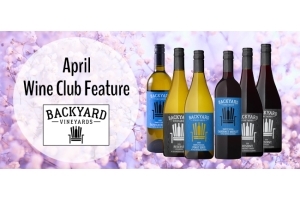Wine 101 - Biodynamic Basics

Ten years ago, it was difficult to mention biodynamics without getting strange looks or being lured into some lengthy debate. Meanwhile, many of the world's best wineries, like French Burgundian houses Leroy, DRC, and Leflaive quietly farmed their grapes according to biodynamic principles—it was easy for critics to drink and enjoy these wines unknowingly.As it's gained momentum, many winemakers and grape growers around the world have adopted some aspects of biodynamic farming in their vineyards, not because it does wonders for their marketing, but because they believe it helps grow healthier grapes while cutting the use of synthetic chemicals that can have long-term destructive effects on vineyard soil.
So what is biodynamics? It's essentially a holistic approach to organic farming, created by Rudolph Steiner in the early 20th century. It promotes viewing the farm and its livestock as a closed circuit, favouring compost and manures over synthetic chemicals. Much of the planting and vineyard work is tied to lunar and astrological cycles. There is a list of compost 'preparations' that are used as fertilizers in the vineyards that incorporate flora like yarrow and chamomile blossoms, stinging nettle, oak bark, as well as dandelion and valerian flowers. Some of these plants and manures are buried inside things like urinary bladders, small intestines, horns, and skulls of farm animals, later to be dug up in the spring for fertilizers. Critics dismiss the more mystical-seeming practices as pseudoscience, and perhaps justifiably so. I think when employing any system of farming that is 100 years old, there's room for certain elements to be adapted to fit the modern realm and others to be dropped.
A company called Demeter certifies farms and vineyards as biodynamic if they meet set standards, and consumers are able to pick up a bottle and see the Demeter's stamp on the label. Some producers forgo certification, either because of the costs, or maybe they've adapted certain principles of biodynamics into their vineyards that work for them, even though it may not be enough to gain Demeter certification.
There are a number of Canadian wineries available on My Wine Canada who are working with biodynamics. Summerhill Pyramid Winery and Tawse Winery are both certified by Demeter. Pearl Morissette, Clos du Soleil, and Haywire all incorporate techniques into their vineyard work. The Grange of Prince Edward Vineyards and Estate Winery is one who is in the process of experimenting with biodynamics.
I find biodynamics fascinating and am always curious to learn what facets wineries use and are most successful with. If this is the first time you're hearing about it, I urge you to read more. While I don't think growing biodynamically will automatically lead to great wine, I think having such a microscopic understanding of the workings of a vineyard, particularly when farming without chemicals, leads to high quality fruit—the basis of all good wine.
Jake Skakun is a writer and sommelier from Vancouver, currently living in Toronto. He can be found most days pulling corks and twisting caps at the Black Hoof. He Tweets and Instagrams @jakeskakun.





